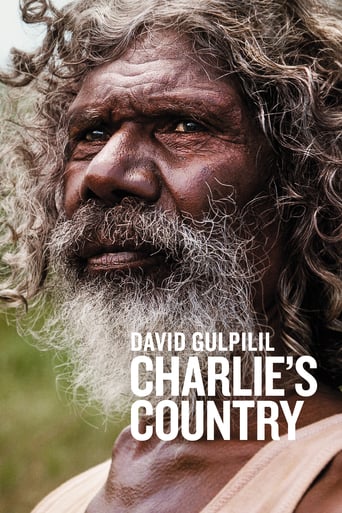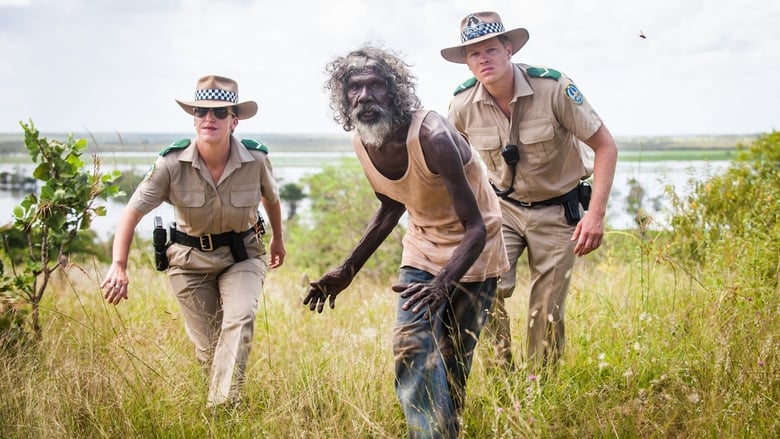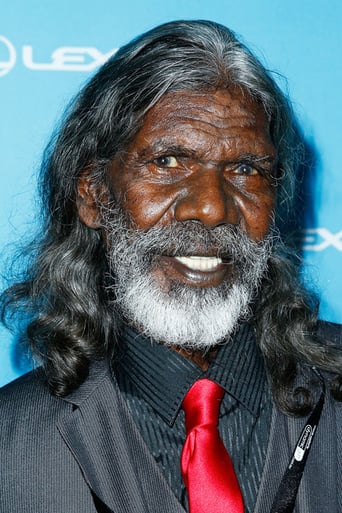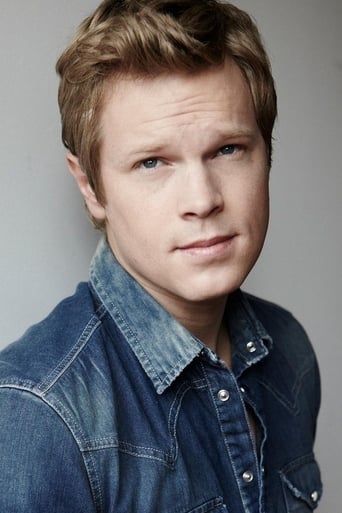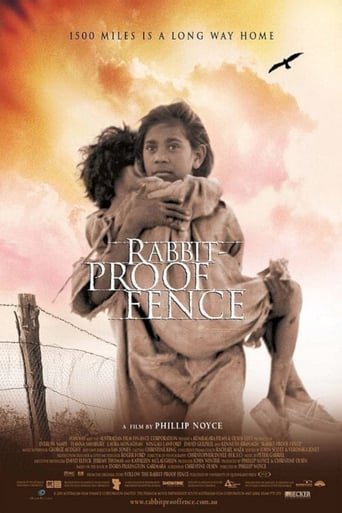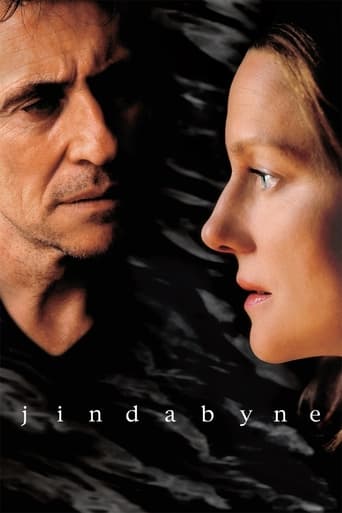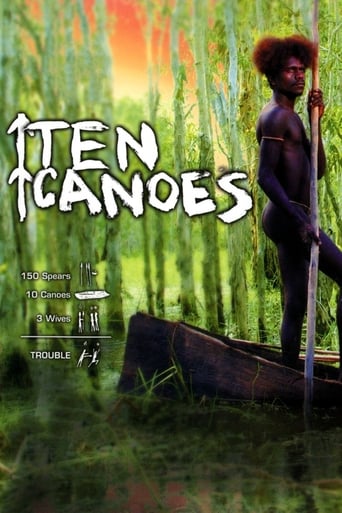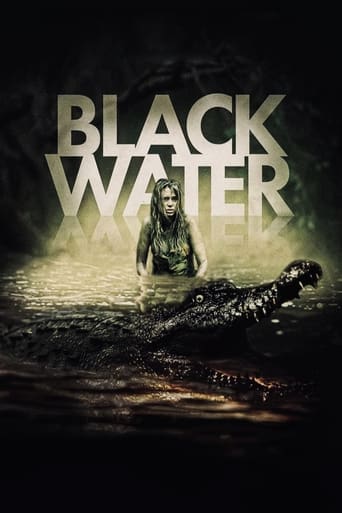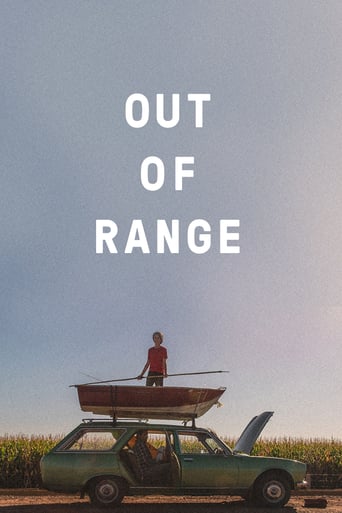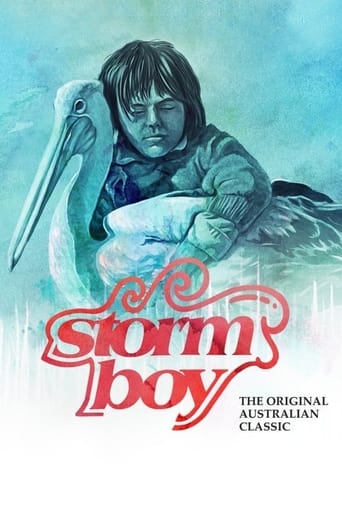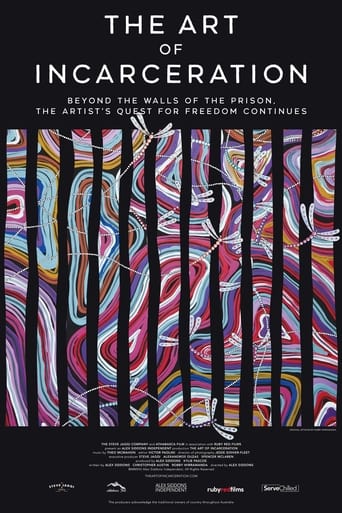Charlie's Country (2013)
Blackfella Charlie is getting older, and he's out of sorts. The intervention is making life more difficult on his remote community, what with the proper policing of whitefella laws that don't generally make much sense, and Charlie's kin and ken seeming more interested in going along with things than doing anything about it. So Charlie takes off, to live the old way, but in doing so sets off a chain of events in his life that has him return to his community chastened, and somewhat the wiser.
Watch Trailer
Cast
Similar titles
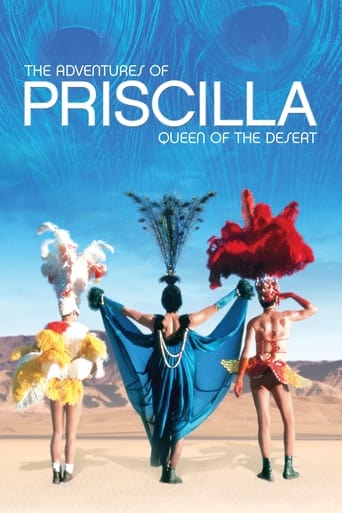
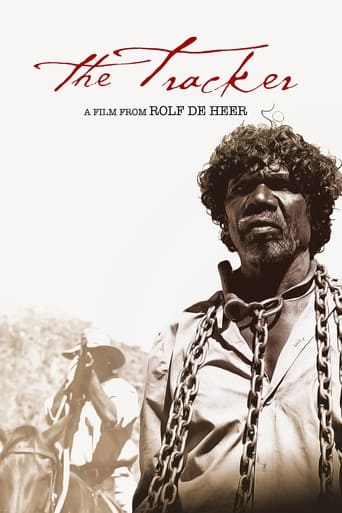
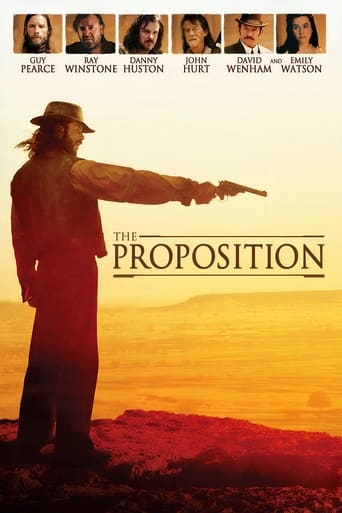
Reviews
I like the storyline of this show,it attract me so much
A Masterpiece!
A brilliant film that helped define a genre
Clever, believable, and super fun to watch. It totally has replay value.
Rolf de Heer, director of this film, has a real connection with Australian Aborigines and the really challenging circumstances they find themselves in. David Gulpilil, one of Australia's leading Aboriginal actors, was in the dance troupe that entertained Queen Elizabeth II when she opened the Sydney Opera House in 1973. But now, in this semi-biographical film, back in his country of Arnhem Land in the eastern Northern Territory, he's finding it really hard to fit in. No matter what he does, it isn't right. White man junk food: no good. Going bush to go hunting with a gun: illegal. Make a traditional hunting spear: illegal too – a dangerous weapon. Help the police track criminals: promises go unfulfilled. Doing the best you can for your family: unappreciated, at best. So Charlie heads off and goes bush. And there the challenges continue to pile up. It's an incredibly insightful yet accessible examination of what has proved an insoluble problem for Australia for decades. Pretty much since the British settlers arrived here in the late 18th century and declared that the land was unoccupied (known as Terra Nullius) this situation was set up. Around a third of the film is in native language with subtitles (possibly David's own Yolngu tongue) and this adds to the convincingness of this film. And it has some really funny moments that add to approachability.As a descendant of the British settlers of this country, I have little ideas about what should be done to help the original human inhabitants of our country effectively. What we've been doing isn't working. This film points to the multi-faceted, multi-dimensional problems, but it doesn't find answers either. Maybe there aren't any, except time. Long time - generations. Anthropologists say Australian Aborigines have been here for at least 40,000 years, maybe up to 60,000. Imposing most of western civilisation's development onto an incredibly long lived culture in less than 200 years has obvious challenges. I think this film gives an authentic insight into the issues, and highlights that broadly workable solutions have yet to be found, in a genuinely entertaining way.
This movie provides an insight into a world that is difficult for many people to see or understand. The film is beautifully shot, and the scenes and sounds of Australia are magical. The acting is first rate, and the script is very clever. Many of the things Charlie says to European Australians don't make much sense, but in this movie we are able to understand what Charlie is thinking when he says these things, and so we understand perfectly what is meant by every sentence he utters. The sense of longing, and of loneliness is palpable, as is the passionate love of country. The dance scenes with the children are uplifting and lovely. This is a moving and beautiful film, and a huge bridge for building understanding and empathy for a different and valuable culture.
Australia's official submission into this year's Best Foreign Language category at the Academy Awards, famed director Rolf de Heer's raw, uncompromising and impressively beautiful film is easily the most accomplished and important tale to come from our shores in quite some time and acts as a very personal journey for one of our country's most recognisable actors, David Gulpilil.To understand the power of Charlie's Country and the telling nature of its tale, one must look into how the film eventuated and what it harboured for Gulpilil in particular. Despite his success as an actor that started off in Nic Roeg's Walkabout in 1971, Gulpilil had found himself on hard times, the victim as sadly many indigenous people face in the country of alcohol abuse that saw him incarcerated in a federal penitentiary. Friends for many years after their collaborations in 2002's The Tracker and 2006's Ten Canoes (Australian film's worthy of being tracked down) de Heer visited Gulpilil in jail where the seeds of Charlies Country were formed when Gulpilil expressed a great desire to once more work with his friend and director. From there a story that was close to Gulpilil's heart began to be formed and it's where the quiet understated power of de Heer's work stems from.With a mere look, or with the camera following his every move through the vast beauty of the Australian outback or the more scary surrounds of Darwin, Gulpilil commands the screen and de Heer controls this wonderfully, not at all afraid to let Gulpilil's face tell us all we need to know. In what is undoubtedly a match between the actor and the real man, Gulpilil inhabits this man Charlie with a grace and understanding as he struggles to come to grips with his mother country slowly but surely coming under more influence from the white man. This small scale story of one man's trials and tribulations masks a much larger overall problem Australia has at its core regarding the treatment of our indigenousness people and a failure to properly combine the old and the new without losing the connection to the land and customs that for thousands of years have been integral to the culture of these people. All these elements within Charlie's Country play out in such a manner that never becomes overbearing, for there is subtle humour here (water buffalo anyone?) and grace from all involved that gives Charlie's Country not only a heart but a recognisable humanity.It shouldn't be surprising that Charlie's Country is a finely crafted and effective movie, for de Heer has long shown his ability to create memorably moving films and his previous collaborations with Gulpilil are some of the finest ever made in this country concerning indigenous culture. From Gulpilil's award worthy turn (which was rewarded with a Best Actor win at this year's Cannes Un Certain Regard festival), Graham Tardif's beautiful piano score and de Heers professional direction, this is Australian filmmaking and storytelling at its best and a moving portrait of modern day life in the harsh realities of the outback and the lives our indigenous people live in particular.4 and a half hand crafted spears out of 5 For more movie reviews and opinions check out - www.jordanandeddie.wordpress.com
Charlie (David Gulpilil), an aging Native Australian living in the Northern Territory, is broke. He does not have a house. He is also hungry and his spirits are low as a result of the erosion of his way of life. Recipient of the award for Best Actor at the 2014 Cannes Film Festival, David Gulpilil is a dominating presence in Rolf de Heer's Charlie's Country, the third film in their collaboration (The Tracker, Ten Canoes). Although much of the film is improvised, Gulpilil co-wrote the script with de Heer while he was serving a prison term. Though the film reflects the actor's personal experience, its theme of the struggle for human dignity in the face of cultural marginalization is universal.Charlie and Officer Luke (Luke Ford) have a good relationship and their banter begins the film. Charlie shouts at Luke, "You white bastards!" to which Luke yells back, "You black bastard!" The fun stops, however, when the police enforce the law preventing Charlie from hunting and fishing. They take his spear because it is considered a dangerous weapon and confiscate his gun because he does not have a weapons license. "I'm gonna shoot it, not drive it!" he tells Luke. While the police are impressed with his tracking ability, Charlie receives no compensation at all for his help in tracking drug dealers.As he sees a member of his community being flown to a hospital far from his land, he makes a decision to return to the bush, to the ways of hunting and food gathering that he knew as a boy. While his body language reflects a new freedom, there is also a deep sadness etched on his face as he realizes he can no longer cope with the physical demands of living in the bush. After a heavy rain, Charlie comes down with pneumonia and has to be airlifted to Royal Darwin Hospital, often a final destination for Aboriginal People. After he leaves the hospital on his own without being released he joins a group of homeless drifters who do nothing but drink and smoke the whole day.After an altercation with the police, Charlie is sent to prison where his hair and face are shaven, looking old beyond his years in the film's saddest moment. All Charlie has left are his memories, especially the one of dancing for the Queen at the opening of the opera house in Sydney. Though there are highs and lows in the film, what is constant is Charlie's sense of identity and his love of his native land and traditions. Though there is a message and the film does make a strong political statement, it is not a one-dimensional screed but a nuanced look at the conditions Native Australians face and their struggle to retain their values in the face of white colonization. Marked by Gulpilil's towering performance, Charlie's Country ultimately teaches us to dance to their rhythm.
